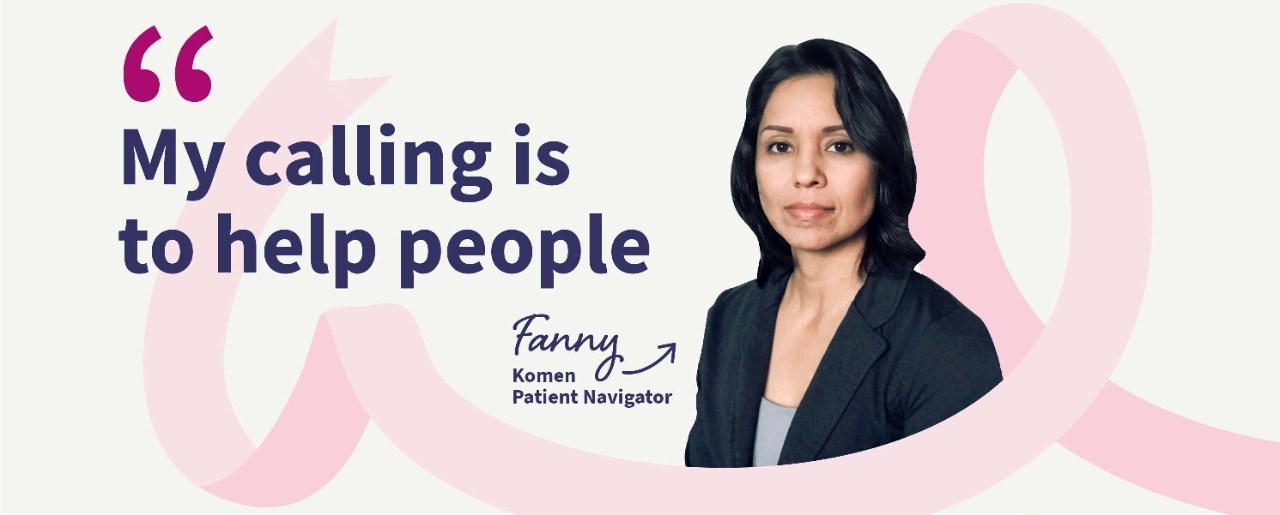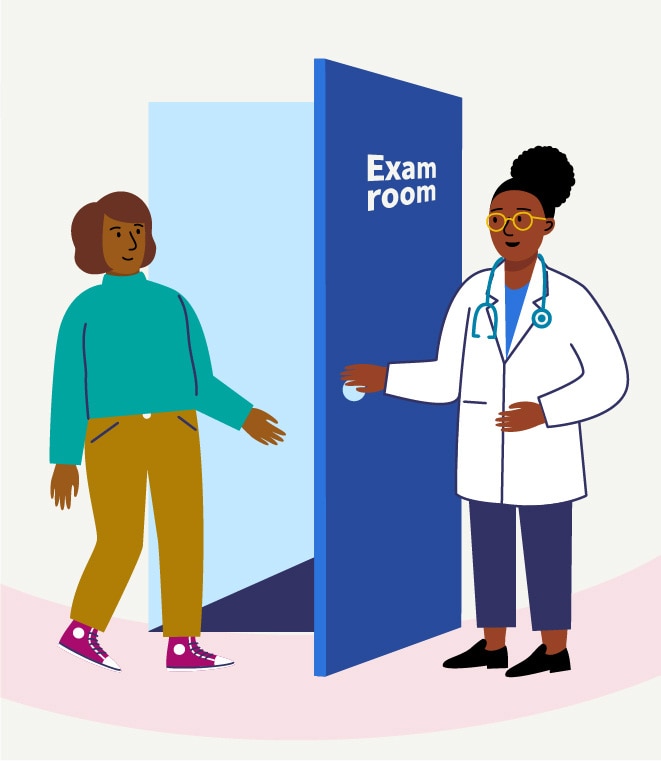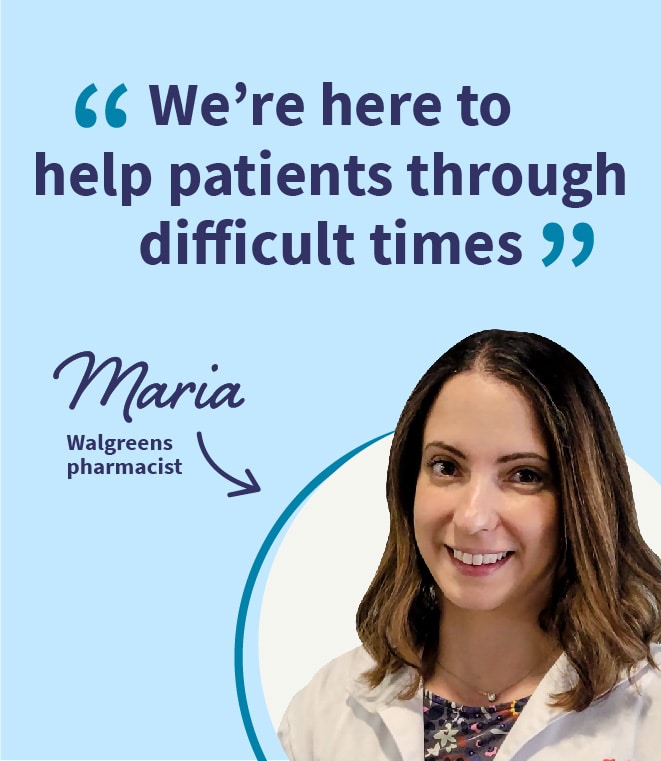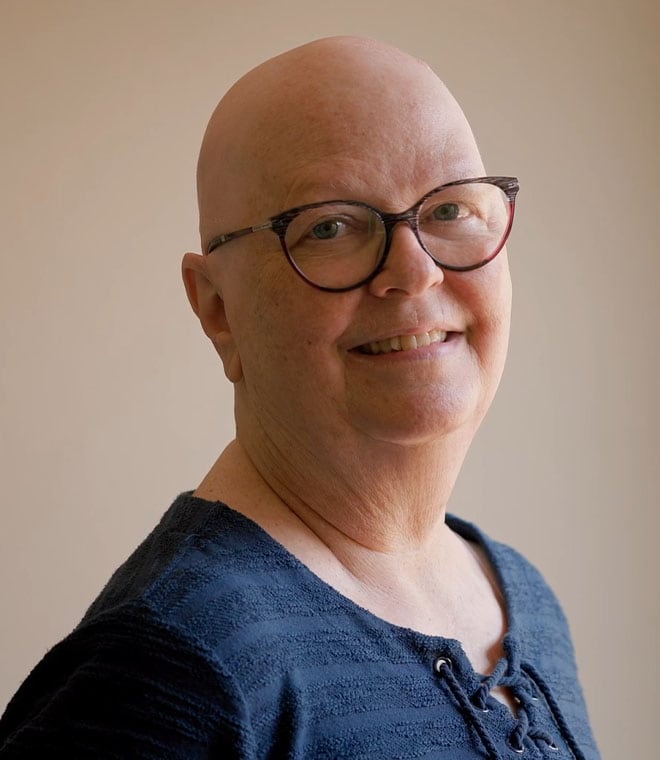Community Stories
The navigator who guides breast cancer patients
By Walgreens Oct 17, 2022 • 5 min
Fanny Jackson never expected she would spend her days helping women navigate their breast cancer diagnoses. After training and working as a dental hygienist for over two decades, Fanny, 39, thought she’d found her lifelong job. But looking back, the decision to pivot was an easy one.
“My calling is to help people,” said Fanny, who has worked as a patient navigator with Susan G. Komen since 2018. “I’ve felt that way since I was 6 years old.”
Komen patient navigators go through extensive training to help guide breast cancer patients through the healthcare system. Komen navigators focus on overcoming barriers that may prevent people from accessing care and connect them to resources like financial assistance. They also help patients communicate with doctors and clinicians to better understand a patient’s treatment plan. Many patients face language or cultural barriers, so Fanny helps patients advocate for themselves.
Komen and Walgreens are focused on providing access to the quality healthcare everyone deserves. Over the past three years, the Walgreens community has raised over $14 million to help fund Komen’s Patient Care Center, which includes the Breast Care Helpline, Financial Assistance Program, the Screening and Diagnostics Program and the Patient Navigation Program.
In her role, Fanny speaks with women across the country. “There are a lot of needs,” she said. “The Komen mission spoke to me. I had to apply.”
Helping people isn’t new to Fanny. Her family landed in South Florida after fleeing the Nicaraguan revolution in 1989. Growing up, she operated both as linguistic and cultural translator for her parents. When the Jacksons first moved to the United States, no one in her family spoke English. But it didn’t take long for Fanny, who was the youngest of her siblings, to pick up the language. And as soon she did, she started accompanying her parents nearly everywhere they went.
Fanny often found herself translating employment contracts, medical bills and immigration materials, too. “Translating for my parents was extremely difficult,” she recalled. “Not only because as a 6-year-old I didn’t know all the terminologies, but because I could also sense my parents’ frustration and the discrimination they were facing. A lot of the time it felt like they weren’t being treated like people.”
Fanny is one of 14 Komen navigators who support patients across the country. She is also part of a nationwide community of navigators Komen has built — The Komen Navigation Nation — to provide training that educates navigators on issues of health equity and the challenges women of color often face when navigating the healthcare system.
In her four years working as a navigator, Fanny has helped hundreds of women in Florida and around the country. One such patient, an older Black woman in Palm Beach County, struggled to express her concerns about undergoing reconstructive surgery, a procedure her doctor suggested.
“I asked her what means the most to her and what will make her feel whole,” remembered Fanny. “When you have breast cancer, a lot of people make decisions for you. I wanted to empower her to share her own concerns and desires.”
Another, a woman from the Dominican Republic living in New York City, faced eviction while undergoing treatment. After months of phone calls, emails and text messages, Jackson was able to secure the young mother a public housing voucher. “I was persistent,” said Fanny. “I just didn’t stop calling and eventually we got her what she needed.”
The experiences Fanny had helping her parents when she was a kid stuck with her and motivated her as she grew older. And now they resonate deeply with the work she does as a Komen patient navigator. Because Fanny couldn’t always help her parents speak up for themselves, she now dedicates her life to helping breast cancer patients do exactly that.
“If I saw someone being mistreated because they came from a different culture or spoke a different language, it would bring me right back to my own memories,” she said. “I would just jump into gear and help.”
Last year, Fanny helped over 120 women, spending hours, months, and sometimes more than a full calendar year supporting them through their diagnoses and journeys. She expects that number will only continue to grow.
Fanny and the specialists who are part of Komen’s Patient Care Center connected more than 26,000 people to the information and resources they needed last year alone.
No matter the task, Fanny says her job is to listen, support and remind women that they’re not just patients, but people, too. “I treat everyone like they’re my family,” she said. “I want them to know that they’re not alone and that there’s someone who cares about them. That’s why I’m here.”
Published October 2022.




